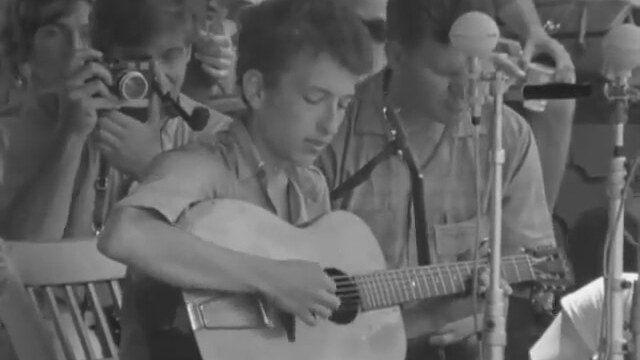
The summer is gone
The ground’s turning cold
The stores one by one they’re a-foldin’
My children will go
As soon they grow
Well there ain’t nothing here now to hold them.–
Once again, a trip home seemingly inculcated him with nostalgia for his “younger days,” when “the red iron pits ran plenty.” The sight of his hometown gripped by irreversible decline, as it would have been by 1963, set off a whole set of memories, good and bad, prompting one of his most effective ballads.
~Clinton Heylin (Revolution in the Air: The Songs of Bob Dylan, 1957-1973)
.. it affects a curious combination of distance and intimacy. The character is a woman who grew up in an iron ore mining town; she tells about the people in her life as if they are no more than extensions of the mine itself, regulated by its success and failure. This has been referred to as a “protest song” but any anger or even any moral must be supplied by the listener; the song itself offers only the sad, believable blankness of the narrator’s experience.
~Paul Williams (Bob Dylan Performing Artist I: The Early Years 1960-1973)
–
Spotify:
